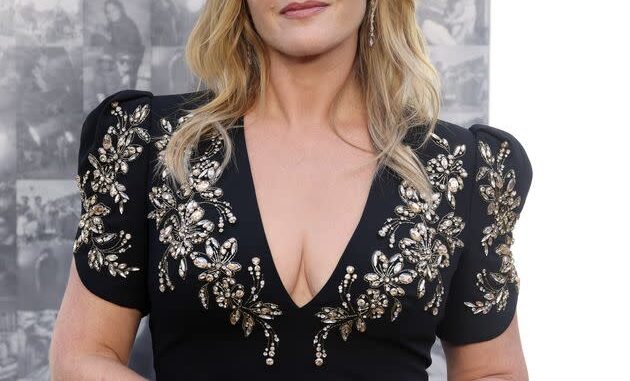
The silver screen has long been a canvas for projections of desire, beauty, and the female form. For decades, the narrative surrounding women’s bodies on camera has been complex, often fraught with objectification, unrealistic ideals, and the relentless pressure to conform. Yet, amidst this enduring landscape, certain voices rise with an unwavering commitment to authenticity, challenging the status quo with refreshing candour. Kate Winslet is one such voice, and her reported four-word message about women showing their bodies on camera – a message I interpret, in its distilled essence, as "This is who I am" – encapsulates a profound call for realism, acceptance, and the reclamation of self.
Winslet’s entire career has been a testament to this philosophy. From her breakout role in Titanic, where a young Rose steps out of her clothes for a portrait, a moment of burgeoning self-awareness and vulnerability, to the raw, unvarnished portrayal of a middle-aged detective in Mare of Easttown, Winslet has consistently refused to shy away from depicting the human body as it truly is: imperfect, aging, beautiful in its reality, and above all, integral to the story being told. Her message, "This is who I am," isn't just a statement; it's an embodied principle that has guided her choices and fueled her outspoken advocacy for authenticity in an industry obsessed with airbrushing and idealization.
Consider the indelible mark she left in The Reader. Here, Winslet played Hanna Schmitz, a woman whose body is not merely an object of desire but a vessel of history, a site of intimacy, shame, and power. Her nudity in the film is neither gratuitous nor conventionally glamorous; it is essential to understanding Hanna’s character, her experiences, and her complex relationship with the young Michael Berg. When Winslet shows her body as an older woman, it’s not to fit an aesthetic ideal, but to portray a lived existence. It's the physical manifestation of a character whose story is etched into every line and curve. Her message rings clear: this is Hanna, in all her vulnerability and strength, her past and present. "This is who I am," the body declares, without apology or artifice.
In Mare of Easttown, Winslet further cemented this ethos. As Mare Sheehan, she portrayed a detective burdened by grief, exhaustion, and the relentless grind of small-town life. There were scenes where Mare, unglamorously, sheds her clothes, revealing a body that mirrors the weariness of her soul. This wasn't the sculpted, flawless physique often seen in Hollywood; it was a real, relatable body, untouched by digital manipulation, reflecting the character’s age and circumstances. Winslet famously resisted the director's offer to photoshop her stomach in one scene, insisting that Mare's body had to reflect her reality. "This is who I am," she effectively said, not just for herself, but for Mare and for countless women who see themselves in Mare's unvarnished truth. It was a powerful act of defiance against an industry that constantly pressures women to conform to an impossible standard.
The impact of "This is who I am" extends far beyond the screen. It is a rallying cry for self-acceptance, encouraging women to embrace their own bodies without shame or fear of judgment. In an age dominated by filtered images and curated perfection, Winslet’s honest message is a breath of fresh air, a vital reminder that our bodies are not commodities to be perpetually perfected, but rather the unique, evolving vessels of our individual stories. It reclaims agency, asserting that the decision to show one's body, and how it is shown, rests with the individual, not with external expectations or the male gaze.
Ultimately, Kate Winslet's four-word message, "This is who I am," is a profound act of courage and generosity. It is an invitation to authenticity, a challenge to objectification, and a celebration of the human form in all its glorious, imperfect reality. Through her unwavering commitment to portraying genuine women on screen, she doesn't just deliver a message; she embodies a movement, paving the way for a more honest, empathetic, and ultimately, more liberating representation of women in film and in life. It reminds us that true power lies not in conforming to ideals, but in the unwavering acceptance of oneself.